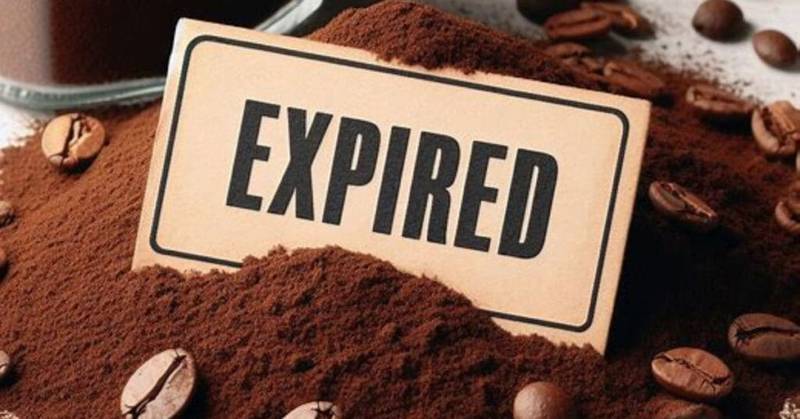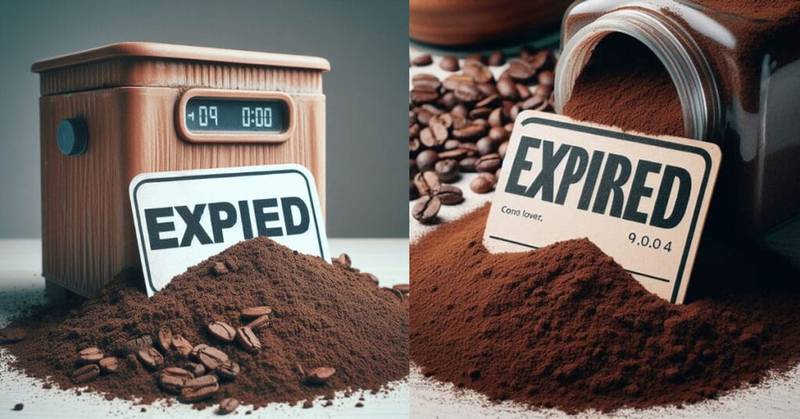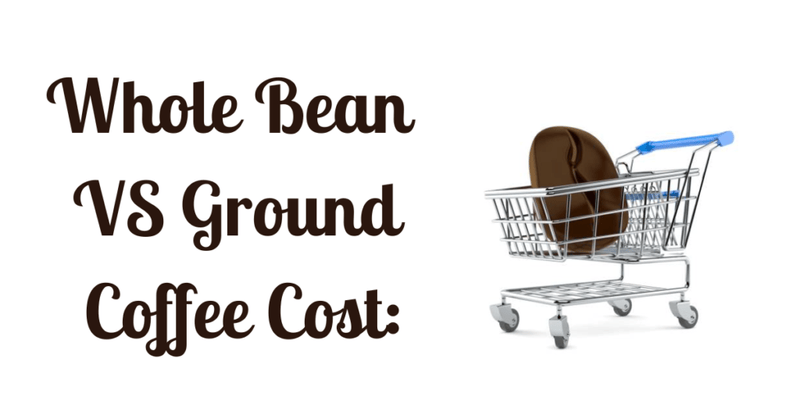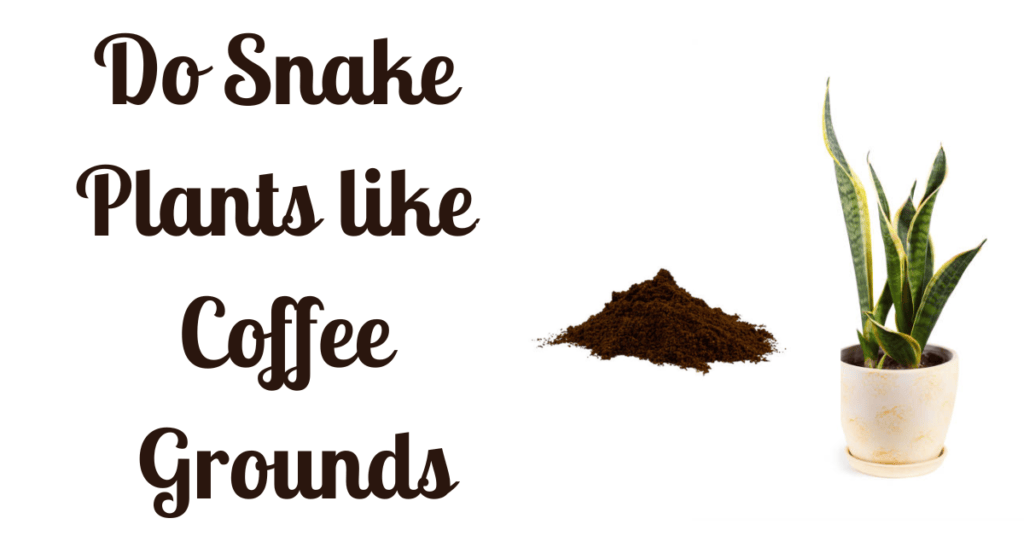Coffee enthusiasts often find themselves wondering about the longevity of their beloved ground coffee.
Thus, this question, Does Ground Coffee Expires, often comes to their mind.
Whether ground coffee has an expiration date is a joint inquiry among those who savor the rich aroma and robust flavor of this unique beverage.
As coffee beans are roasted and ground, they undergo chemical changes contributing to their distinctive taste profile.
In exploring the lifespan of ground coffee, it’s intriguing to delve into the realm of coffee beans themselves. Wondering, “Can I utilize outdated coffee beans?” Yet, amidst these musings, the central query remains: Does ground coffee have an expiration date?
In this exploration of does ground coffee has an expiration date, we delve into the factors that influence its expiration date.
This investigation will address the impact of storage methods, packaging, and the coffee bean type on ground coffee’s shelf life.
Whether you are an avid coffee connoisseur or a casual drinker, understanding the dynamics of ground coffee’s expiration date is crucial for ensuring a consistently satisfying coffee experience.
Table of Contents
Does Ground Coffee Have an Expiration Date || Can Ground Coffee Go Out of Date?

Ground coffee has no strict expiration date, but its quality can deteriorate.
The freshness of ground coffee is influenced by various factors such as exposure to air, light, moisture, and temperature. Improper storage can lead to the loss of the coffee’s distinctive flavors and aromas.
Store coffee beans in a sealed container at room temperature (20 to 25 degrees Celsius or 68 to 77 degrees Fahrenheit) for optimal results. This practice minimizes exposure to heat, air, and moisture, preserving the quality of your beans.
To maintain optimal quality, storing ground coffee in a cool, dark, and airtight container is advisable.
While it may not “go out of date” traditionally, vigilant storage practices can help coffee enthusiasts enjoy a more satisfying and flavorful cup over an extended period.
Regularly checking the condition of stored ground coffee and being mindful of its storage environment can contribute to a better coffee experience.
The storage question adds a touch of elegance, making you ponder if coffee beans can be stored in glass-like cherished treasures.
Does Ground Coffee Expire if Unopened?
Even when unopened, ground coffee is not immune to the passage of time.
While it doesn’t have a strict expiration date like perishable items, it does have a shelf life during which its flavors and aromas peak.
Unopened ground coffee can last for several months to a year, depending on factors such as the type of coffee, the packaging, and storage conditions.
However, it’s important to note that coffee is sensitive to environmental elements like air, light, and moisture.
Storing unopened ground coffee in a cool, dark place and in an airtight container can help preserve its freshness for longer.
Does Sealed Ground Coffee Expire?
Like its unopened counterpart, sealed ground coffee has an expiration date due to the gradual deterioration of its flavor and aroma.
While you technically can use expired coffee grounds, the quality of your brew may suffer.
The taste might become stale or flat, and the aromatic notes may diminish.
To ensure the best coffee experience, it’s advisable to use sealed ground coffee within its recommended shelf life.
Additionally, paying attention to the storage conditions, such as keeping it in a sealed container and away from direct sunlight or heat, can further extend its freshness.
Does Coffee Go Bad?
Coffee doesn’t precisely go bad in the traditional sense but can go stale over time.
The primary culprits are exposure to air, light, and moisture, which can compromise the flavors and aromas of the coffee beans. Proper storage is critical to slowing down this process.
Airtight containers, kept in a calm and dark place, help maintain the quality of the coffee for a more extended period.
While stale coffee won’t make you sick, it won’t deliver the rich and nuanced taste that fresh coffee provides.
Regularly rotating your coffee stock and purchasing smaller quantities can ensure you enjoy the best flavors from your coffee beans.
What Happens if You Drink Expired Coffee?
Consuming expired coffee is generally safe, as coffee doesn’t harbor harmful bacteria that could make you sick.
However, the experience may not be as enjoyable.
Dead coffee can taste flat, bitter, or generally lack the vibrant flavors found in fresh coffee.
The deterioration in taste results from the oxidation and breakdown of the coffee’s organic compounds over time.
While drinking expired coffee won’t have adverse health effects, it’s recommended to prioritize using fresh coffee for a more satisfying and flavorful beverage.
What to do with Expired Ground Coffee?

Suppose you have expired ground coffee you don’t want to use for brewing.
In that case, several creative and practical ways exist for coffee grounds recycling.
Exfoliating Scrub:
Ground coffee makes an excellent natural exfoliant.
Mix expired coffee grounds with coconut oil or yogurt for a DIY exfoliating scrub.
Gently massage the mixture onto your skin in the shower to help remove dead skin cells.
Odor Neutralizer:
Coffee has natural odor-absorbing properties.
Place a bowl of dried, expired coffee grounds with lingering odors in your refrigerator, freezer, or any other area.
The coffee will help neutralize and absorb unwanted smells.
Cleaning Scrub:
The gritty texture of coffee grounds makes them practical for scrubbing surfaces.
Use them as a non-abrasive cleaner for scrubbing pots, pans, or shells that need extra cleaning power.
Fertilizer for Plants:
Coffee grounds are rich in nitrogen and can be an excellent fertilizer for specific plants.
Mix the expired coffee grounds into the soil of acid-loving plants like azaleas, roses, or hydrangeas.
Repel Insects:
Scatter coffee grounds around outdoor seating areas to help repel insects.
The pungent aroma of coffee can deter pests like ants, snails, and slugs.
DIY Coffee Scented Candles:
Combine expired coffee grounds with melted candle wax to create unique, coffee-scented candles.
This repurposes the feet and adds a cozy coffee fragrance to your living space.
Crafting and Art Projects:
Get creative with expired coffee grounds in arts and crafts projects.
They can be used to add texture to paintings or mixed into papier-mâché for a unique look.
Hair Treatment:
Mix coffee grounds with your regular shampoo for a DIY scalp exfoliant.
The coarse texture can help remove product buildup and exfoliate the scalp.
Flavor Enhancer for Cooking:
While not suitable for brewing, expired coffee grounds can still impart a subtle coffee flavor when used in recipes.
Try adding a small amount to rubs for meats or as an ingredient in chocolate-based desserts.
Natural Dye:
Coffee grounds can be used as a natural dye for fabrics or Easter eggs.
Simmer them in water and strain them to create a brown shade for various projects.
By recycling coffee grounds in these ways, you can make the most of what might otherwise go to waste while enjoying the benefits of its unique properties in different aspects of your daily life.
Understanding the Shelf Life of Ground Coffee

The shelf life of coffee refers to the duration during which coffee beans or ground coffee maintain their quality, flavor, and aroma.
Roasting Date of Ground Coffee
The roasting date is a critical factor in determining the freshness of coffee.
Coffee beans are at their peak flavor within a specific timeframe after roasting.
Coffee should be consumed within two weeks to a month after roasting to experience its flavor profile.
After this period, coffee starts to lose its freshness, and the taste may become stale.
Type of Coffee
Different types of coffee beans, such as Arabica and Robusta, have distinct flavor profiles and shelf lives.
Arabica beans are generally more delicate and have a shorter shelf life than Robusta beans.
The coffee’s origin and processing methods can also impact its longevity.
Moisture
Moisture is a critical factor that can affect the shelf life of coffee.
Excess moisture can lead to the growth of mold and spoil the coffee.
It’s crucial to store coffee in a cool, dry place, preferably in an airtight container, to prevent moisture absorption and maintain the coffee’s freshness.
Light
Exposure to light, especially sunlight, can accelerate the deterioration of coffee.
UV rays can lead to the breakdown of compounds in coffee, resulting in a loss of flavor and aroma.
To preserve the quality of coffee, it is advisable to store it in opaque or dark containers and keep it away from direct sunlight.
Heat
Heat is another factor that can adversely affect the shelf life of coffee.
Storing coffee in a warm environment can expedite oxidation, causing the beans to lose flavor and aroma more quickly.
Keeping coffee in a cool, dark place is best to avoid exposing it to excessive heat to prolong its freshness.
In summary, understanding the shelf life of coffee involves considering factors such as the roasting date, type of coffee, moisture content, exposure to light, and heat.
Proper storage practices, including keeping coffee in a cool, dry place in an airtight container, can help maintain its quality and flavor for an extended period.
Proper Storage Methods of Ground Coffee
Proper storage of ground coffee is essential to maintain its freshness, flavor, and aroma.
Here are some tips to help you store ground coffee properly:
1. Store in an Airtight Container
When exposed to air, ground coffee is susceptible to losing its flavor and aroma.
To preserve its freshness, storing it in an airtight container is crucial.
A container with a secure seal helps prevent air from entering and protects the coffee grounds.
This ensures that the flavors remain intact and the coffee maintains its quality over time.
2. Maintain a Proper Temperature
Temperature plays a significant role in preserving the quality of ground coffee.
It’s important to store coffee in a relaxed and consistent environment.
Avoid exposing it to drastic temperature changes or keeping it near heat sources. Ideally, room temperature or a slightly more relaxed atmosphere is suitable for maintaining the integrity of the coffee.
Extreme temperatures can lead to flavor degradation and compromise the overall coffee experience.
3. Protect Against Humidity
Humidity is another factor that can negatively impact ground coffee.
Moisture can cause the coffee to clump together and promote mold growth, affecting taste and safety.
To protect against humidity, store the ground coffee in a dry environment.
Choose a storage location away from areas with high humidity, such as the kitchen sink or the refrigerator.
Using moisture-absorbing packets in the container can also help ensure the coffee remains dry and fresh.
Tips and Tricks for Preserving Coffee Freshness

Preserving the freshness of coffee is crucial for maintaining its flavor and aroma.
Here are some tips and tricks to help you keep your coffee beans or grounds fresh:
1. Freeze Coffee
Freezing coffee can help preserve its freshness by slowing the oxidation process and preventing the loss of flavor compounds.
Divide your coffee into airtight containers or vacuum-sealed bags before placing them in the freezer.
Ensure you only take out what you need to minimize exposure to air and moisture.
Additionally, allow the frozen coffee to come to room temperature before brewing to prevent condensation on the grounds.
2. Use Cool, Dark Storage
Storing coffee in a cool, dark place is crucial for maintaining its flavor profile.
Exposure to light and heat can accelerate the deterioration of coffee beans.
Choose opaque, airtight containers to shield the coffee from light, and store them in a cool pantry or cupboard away from direct sunlight or heat sources.
This method helps preserve the volatile compounds responsible for the coffee’s aroma and taste.
3. Consider a Dehumidifier
Humidity can negatively impact the freshness of coffee beans by promoting mold growth and accelerating the degradation of flavor compounds.
Using a dehumidifier in the storage area can help maintain optimal conditions for coffee preservation.
Keep the humidity level between 40-60% to prevent moisture absorption by the coffee beans, which can compromise their flavor and aroma.
4. Buy in Small Batches
Consider buying in smaller quantities to ensure you consume coffee at its peak freshness.
Coffee beans start to lose their flavor once exposed to air, so purchasing smaller batches reduces your coffee’s storage time.
This approach allows you to enjoy the full spectrum of flavors in your coffee without the risk of staleness.
Additionally, it will enable us to explore different coffee varieties and origins more frequently.
Does Ground Coffee Have an Expiration Date: FAQS
Can You Drink 2-Year-Old Coffee Beans?
Whole beans stay fresh for a year sealed, and once opened, last a week to a month; ground beans last a few months unopened but should be used within days of opening.
Does Nescafe Coffee Expire?
Opened NESCAFÉ instant coffee maintains optimal quality at room temperature for about 12 to 18 months when properly sealed and stored.
Should Ground Coffee be Refrigerated?
Store ground coffee at room temperature in a dry, sealed container for extended freshness—avoid refrigeration for optimal quality, as per 2023 coffee storage tips.
Can I Drink Overnight Coffee?
Avoid consuming black coffee left out for over 24 hours; it’s best not to exceed two hours for safety with milk.
Conclusion
In conclusion, the question, “Does ground coffee have an expiration date?” is met with nuanced considerations.
While ground coffee has no strict expiration date, its freshness is profoundly influenced by storage conditions and packaging.
By understanding these dynamics, coffee enthusiasts can savor the rich flavors of their favorite brew for an extended period.
So, while ground coffee may not have a definitive expiration date, its longevity is a testament to the importance of proper storage practices.







